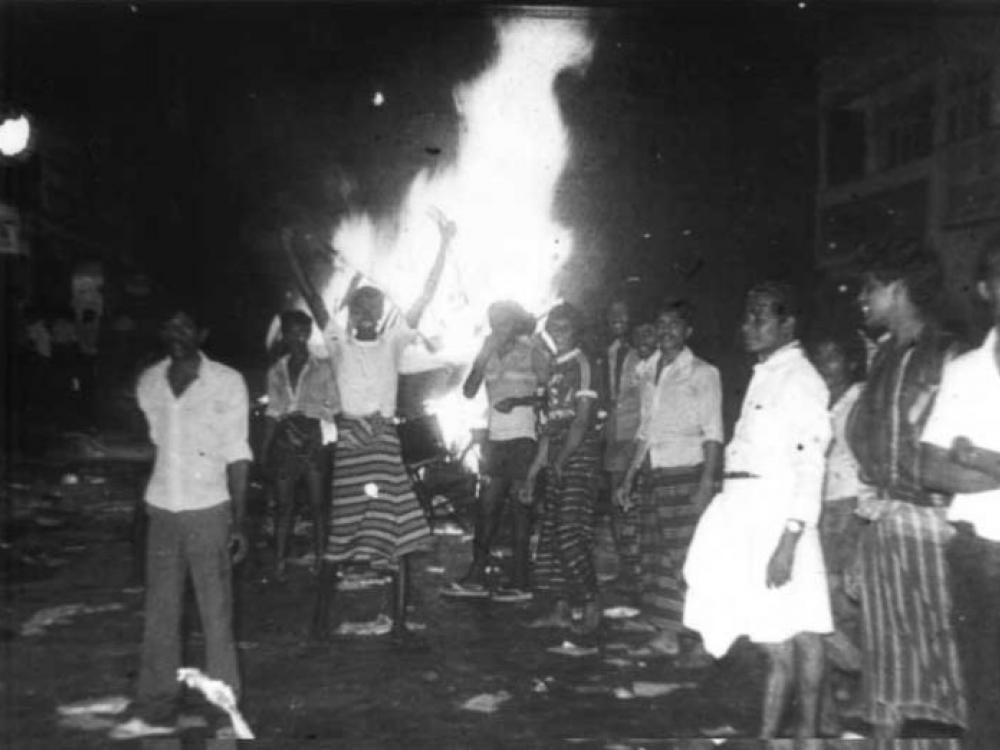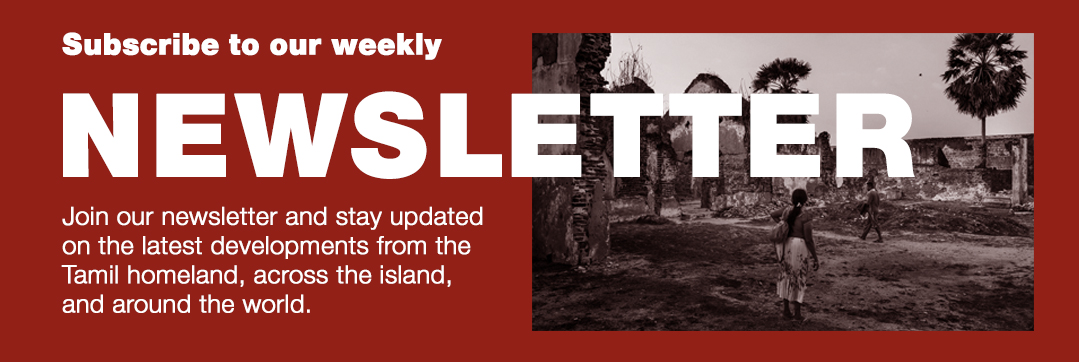
As parliamentary elections draw closer, campaigning has heated up across the island. In the North-East, Tamils, including families of the disappeared, have signaled their discontent at the current state of military occupation, repression and impunity. More than eleven years on from the massacres of Mullivaikkal, dozens of men and women have died searching for their abducted loved ones. They, and the Tamil people, remain no closer to justice for the atrocities they endured. Across the homeland, their protests have defiantly continued and their frustration is palpable.
In the Sinhala south, nationalist rhetoric and extremist language is climbing. And it is not just the Rajapaksas that are joining the chorus. Last week, both the UNP and SJB released manifestos which were clear in their policy of Buddhism having the “foremost” place on the island, whilst boasting of “safeguarding” Sri Lankan identity and leaving “no room for separatism”.
Meanwhile, the ruling regime has proceeded with the same brazenness it displayed when it came into power. Amidst a climate in which Sinhala extremism is becoming more explicitly accommodated and articulated by the state, the regime has relentlessly pursued its majoritarian project. There has been more militarisation of civilian life, especially in the North-East. There have been continued efforts of state-sponsored Sinhalisation. And, as ever, there has been more intimidation, harassment and threats of violence.
This was illustrated earlier this month when Jaffna University lecturer Dr Kumaravadivel Guruparan handed in his notice of resignation, following months of state-led harassment. As I wrote last week, it is a marker of the dangerous road the island is hurtling down. If the Rajapaksas were to achieve their coveted two-thirds super majority next week, the state will take a major step towards entrenching its systemic Sinhala-Buddhist supremacy.
Amidst the growing certainty of darker times to come, it was perhaps significant that this week, Tamils around the world paused to mark 37 years since the anti-Tamil pogroms of Black July. The atrocities, which left thousands dead, remain a stinging and poignant reminder of the violence that Sinhala supremacy is willing to unleash.
Dr Thusiyan Nandakumar, Editor-In-Chief
_____
For more regular updates, sign up to our newsletter below.
____

